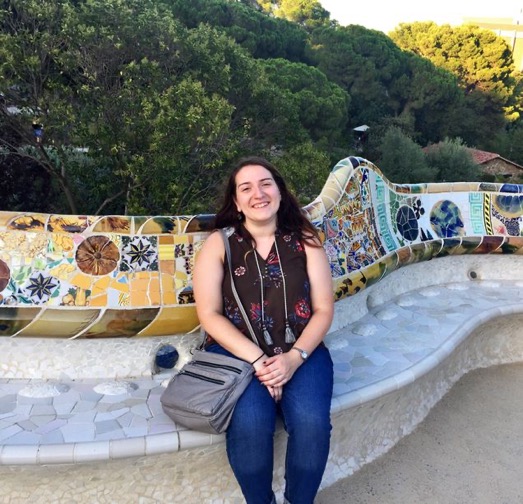
MA in Archaeology, 2020
Questions & Answers by Katie Berlin
- What motivated you to make that transition?
My husband is an academic, so we moved to the UK when he got a job at the University of Warwick. Before moving, I was working in the environmental consulting sector with EBI Consulting as a Tribal Coordinator/Project Archaeologist. The UK doesn’t have tribal consultation policies, so there was no like-for-like role for me to apply for, and project archaeology was competitive (at least when I was on the market!). So, I ended up taking a leap of faith and jumped into higher education administration, with a focus on equity in higher education. I started out supporting work to enable students to explore and enrol on ‘non-traditional’ routes into higher education, followed by project work to support the reduction of degree awarding gaps (in the UK, degrees have ‘grades’ and students from disadvantaged and underrepresented backgrounds tend to be awarded lower grades). I now work in the Widening Participation team, which focuses on widening access to the University/higher education for students from low socioeconomic and other priority backgrounds. This is all a long-winded way to say that while I initially transitioned out of archaeology due to moving countries and navigating a new and competitive job market, I found that I also made the transition because I wanted to help people (in this case, students) reach their full potential. While I love archaeology and exploring the past, I was drawn to the ways that I could support equity and empower people from underrepresented and disadvantaged groups in the present and the future.
- How would you describe the biggest differences between working in archaeology and in a non-archaeology field based on your own working experience?
From my own personal experience, when I was working in archaeology, I was a fully remote worker, and my coworkers were spread out across the United States. When I was out doing fieldwork, I was waking up earlier and spent a lot on my own and driving to job sites. I was also managing large and varied project portfolios and stakeholder groups. Now, I split my time between home and office working and get to really sink my teeth into a few big projects at a time instead of splitting my time up across lots of smaller pieces of work. I really like this because it means I get to see a project all the way through from development to completion. The fact that I also work in the same locations as my team members and stakeholder groups means that I’ve been able to foster more meaningful relationships with people and I feel like I’m part of a vibrant community. Personally, my experience of archaeology was very due diligence processes driven, meaning I had to adhere to and uphold strict federal policy, whereas my time in higher education has enabled me to play key roles in influencing and shaping policy rather than having to just abide by it, which has been really empowering.
- Looking back, is there anything you wish you had known or prepared for earlier during your undergrad or graduate studies, particularly regarding career development?
If I could turn back time, I’d tell myself to learn more project management skills and to try to use them in my undergrad and graduate research/projects – these skills are important for career development and having clear examples to demonstrate proficiency is key. Similarly, take the statistics and data analytics courses! I really hated math and stats as a student and avoided it at all costs, but being able to do data analytics is highly sought after and an invaluable skill to have. A large proportion of my job is data analysis (which I really enjoy now), but it’s meant that I’ve had to take a lot of time to teach myself the skills I need. These are both versatile and transferable skillsets that will only ever help you – especially as we are moving towards a project-focused and data-led world.